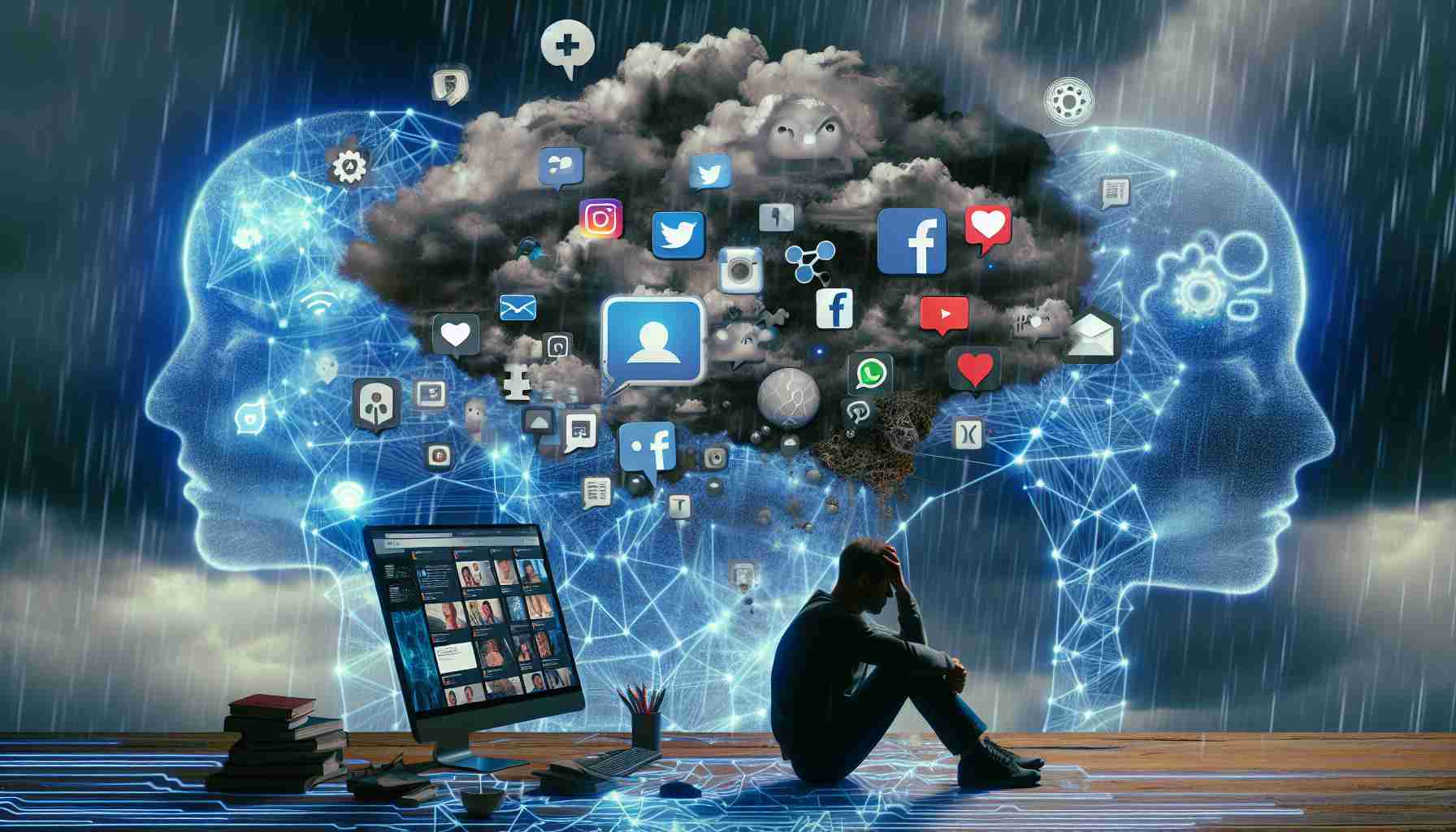Social media platforms have become an integral part of people’s lives, allowing them to connect, share, and express themselves. However, there is growing concern about the impact of social media on mental health.
Experts warn that excessive use of social media can lead to negative psychological outcomes. One of the main concerns is the constant comparison and competition that comes with seeing others’ highlight reels. The curated nature of social media can make individuals feel inadequate and less satisfied with their own lives.
Moreover, social media can fuel feelings of loneliness and isolation. While it provides a sense of virtual connection, it can also lead to a diminished sense of real-world interaction. Spending excessive time scrolling through feeds can replace meaningful face-to-face interactions, potentially leading to a decline in mental well-being.
Studies have also linked the excessive use of social media to increased anxiety, depression, and sleep disorders. Social media platforms are designed to be addictive, with features like infinite scrolling and push notifications that keep users engaged for longer periods. This constant stimulation can result in heightened stress levels and negatively impact mental health.
Despite these concerns, it is important to note that social media can also have positive effects. It can be a valuable tool for staying connected with loved ones, accessing information, and finding support communities. The key is to find a balance and be mindful of one’s social media consumption.
Ultimately, it is crucial for individuals to prioritize their mental well-being and be aware of the potential impact that excessive social media use can have. Taking breaks, setting boundaries, and practicing self-care are essential steps towards maintaining a healthy relationship with social media. Seeking professional help if needed is also important in addressing any underlying mental health issues exacerbated by social media use.
Additional facts:
1. A study conducted by the Royal Society for Public Health (RSPH) in the UK found that Instagram is the platform with the most negative impact on mental health, particularly among young people.
2. Cyberbullying is a significant concern on social media platforms, with individuals being subjected to harassment, threats, or humiliation online. This can have severe consequences on mental health, leading to feelings of anxiety, depression, and even suicidal thoughts.
3. The pressure to maintain an online persona that is “perfect” can contribute to body image issues and low self-esteem, especially among young people who are more vulnerable to societal pressures and ideals.
4. Social media can negatively affect sleep patterns, as the blue light emitted from screens disrupts the body’s natural sleep-wake cycle. Excessive screen time before bed can lead to difficulty falling asleep and poor quality sleep.
5. Research has shown that social media can impact mental health differently based on gender. For example, girls are more likely to experience body dissatisfaction and eating disorders, while boys may be more vulnerable to cyberbullying and aggressive behavior.
Key questions and answers:
1. How can one strike a balance between using social media for positive purposes and avoiding its negative impact on mental health?
It is important to be mindful of one’s social media consumption and set boundaries. This could include limiting the amount of time spent on social media each day, unfollowing accounts that trigger negative feelings, and focusing on platforms that promote positive content and supportive communities.
2. What steps can be taken to combat cyberbullying on social media platforms?
Social media platforms should have stricter guidelines and policies in place to combat cyberbullying. Users should be encouraged to report any instances of harassment or bullying, and platforms should take prompt action to remove offensive content and suspend or ban those responsible.
Key challenges and controversies:
1. Balancing the need for free speech on social media platforms while also addressing the harmful effects it can have on mental health poses a challenge. Determining where to draw the line between freedom of expression and protecting individuals from harm is an ongoing debate.
2. The addictive nature of social media and the constant need for engagement presents a challenge for users trying to limit their use. The design features that make social media platforms addictive, such as infinite scrolling, can make it difficult to break the cycle and establish healthier habits.
Advantages:
– Social media allows for instant connection and communication with friends, family, and communities.
– It provides a platform for self-expression and creativity.
– Social media can be a source of support and information, particularly for individuals going through similar experiences or seeking advice.
Disadvantages:
– Excessive use of social media can negatively impact mental health, leading to feelings of inadequacy, increased anxiety, and depression.
– It can contribute to a sense of isolation and replace real-world interactions.
– Cyberbullying and harassment are prevalent on social media platforms and can have severe consequences on mental well-being.
Suggested related links to main domain:
– National Alliance on Mental Illness
– Mental Health America
– World Health Organization – Mental Health


















